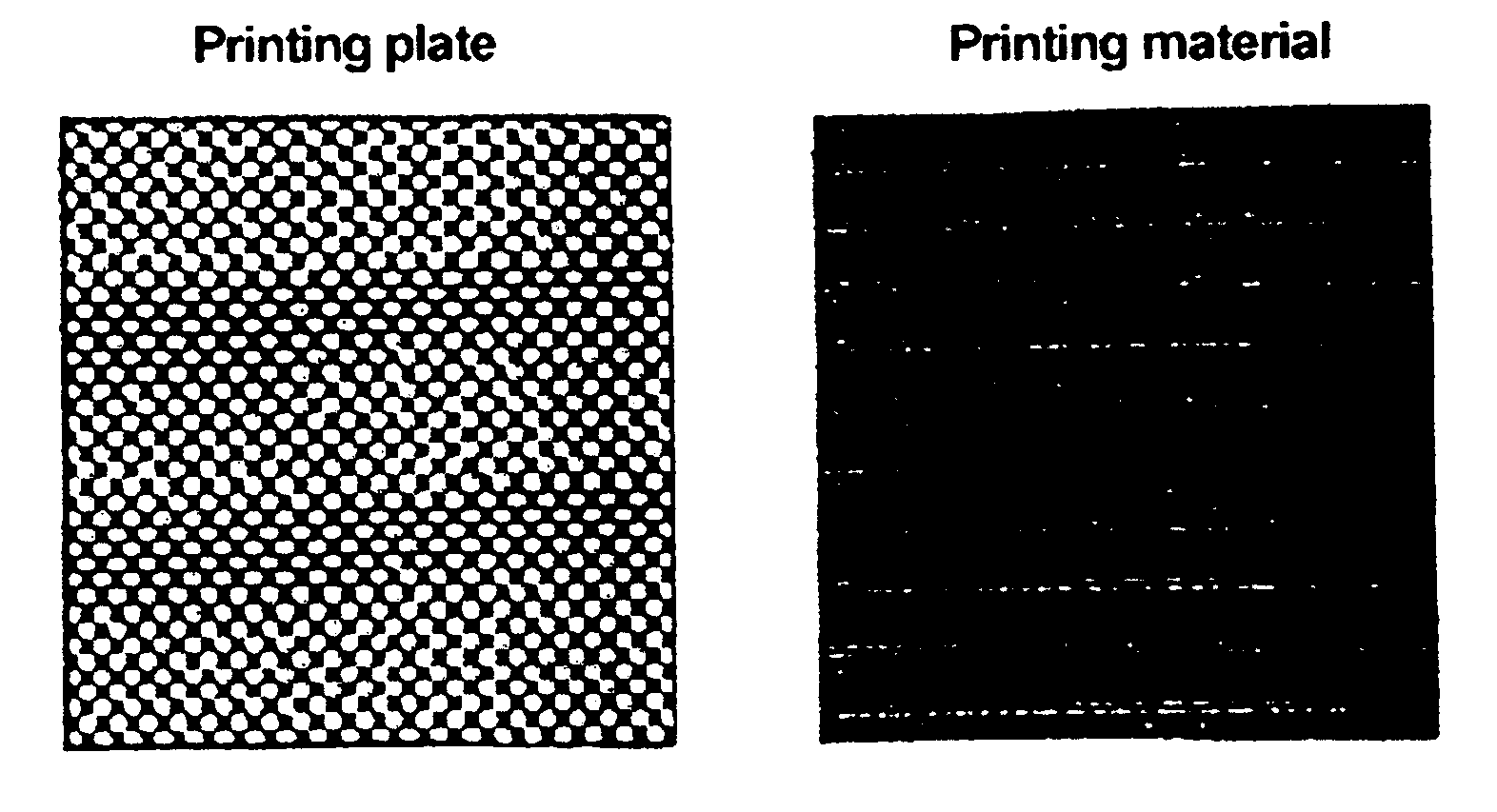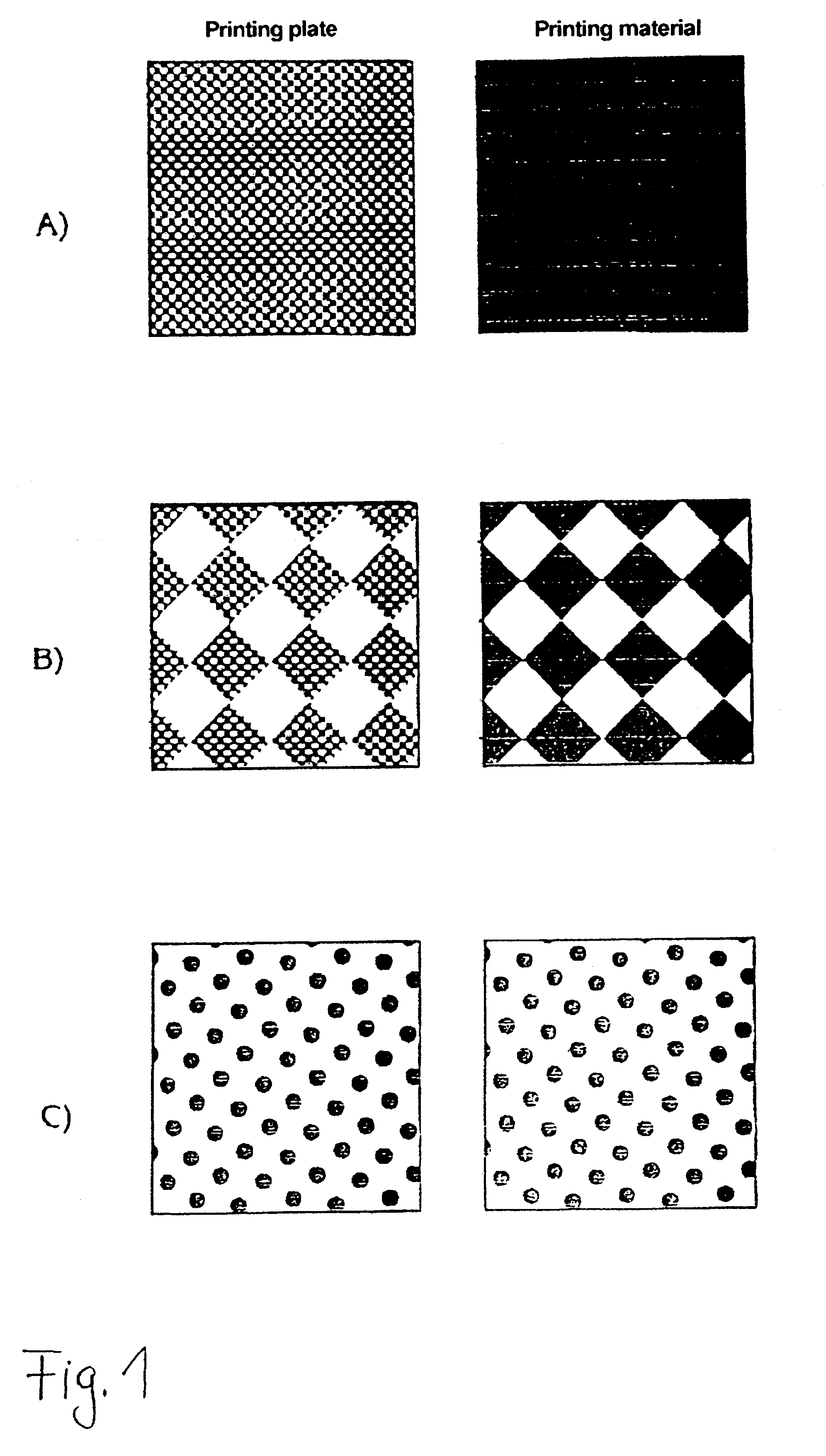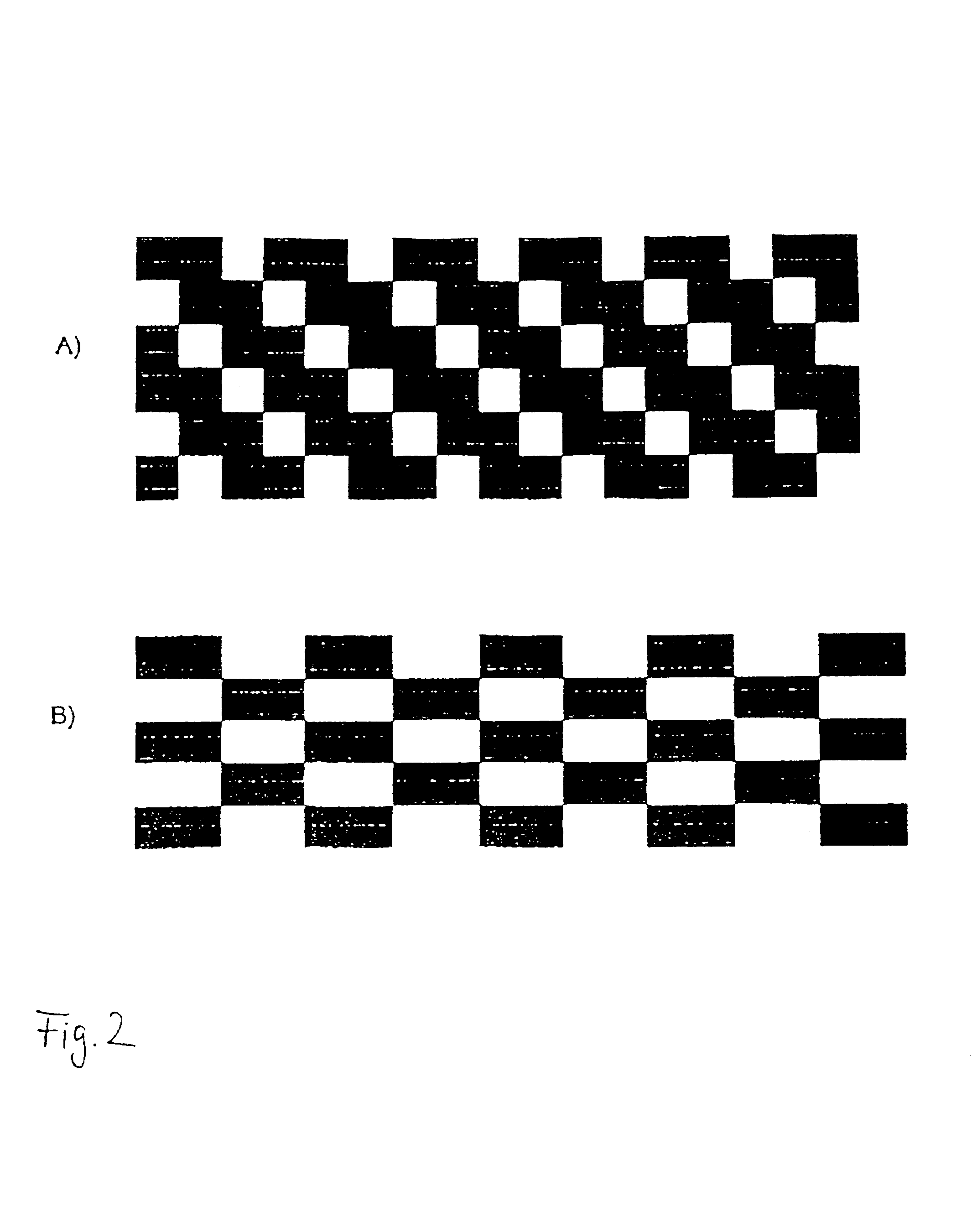Method of varying the ink density of the full tone in offset printing within a rotary printing machine
a technology of offset printing and rotary printing machine, which is applied in the direction of digitally marking record carriers, lithography, instruments, etc., can solve the problems of inability of the inking unit to regulate the ink supply, the complexity of the inking unit, and the disadvantage of the ink supply regulation
- Summary
- Abstract
- Description
- Claims
- Application Information
AI Technical Summary
Benefits of technology
Problems solved by technology
Method used
Image
Examples
Embodiment Construction
FIG. 1A shows the effects of tonal value gain for the case of a solid tone. The pattern of the printing plate in FIG. 1A becomes fuller on the printed material. The basic raster is superimposed on a microraster of 50%, that is to say only about 50% of the amount of ink of a fully covered full tone is picked up. The microraster does not appear on the printing material as a result of the geometric tonal value gain. The result is a full tone with a substantially reduced density.
This procedure can also be continued in the area of raster tones in which the basic raster is a half tones, as shown schematically by FIG. 1B. It is, of course, possible to dispense with a microraster in the region of highlights according to FIG. 1C or to set a 0% tonal value reduction. In addition, a gentle transition with a large reduction at high tonal values and a lower to no reduction at small tonal values is conceivable.
A fact which assists this effect is, moreover, that the ink layer thicknesses transferr...
PUM
 Login to View More
Login to View More Abstract
Description
Claims
Application Information
 Login to View More
Login to View More - R&D
- Intellectual Property
- Life Sciences
- Materials
- Tech Scout
- Unparalleled Data Quality
- Higher Quality Content
- 60% Fewer Hallucinations
Browse by: Latest US Patents, China's latest patents, Technical Efficacy Thesaurus, Application Domain, Technology Topic, Popular Technical Reports.
© 2025 PatSnap. All rights reserved.Legal|Privacy policy|Modern Slavery Act Transparency Statement|Sitemap|About US| Contact US: help@patsnap.com



